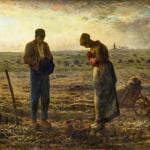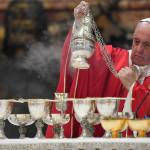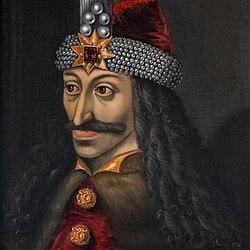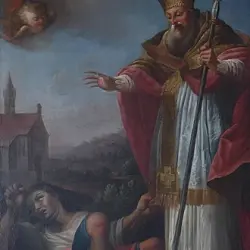There are a lot of members of the Broad Chorus of Catholic Thinkers posting articles, videos and podcasts online. So much in fact that one really doesn’t have the time, energy or computer bandwidth to read all the good things being written up and slapped on a web page. And so I decided to bring examples of a 132 of them together in one post. It consists of bits of Orthodox Catholic thoughts from the Catholic Rigorous Vortex and the Liberal Hippie Catholics and everyone else in-between.
WRN # 18 Cool Tunes From the Broad Chorus of Catholic Thinkers
Easy Access to Tunes and Tweets from the BCCT JULY 29, 2022
The diversity of thought within Catholic teaching, like variety within the strictures of sonnets, is one of its most beautiful features. It is nevertheless important to listen, as much as we can, to a broad chorus of Catholic thinkers. I have found great consolation in the fact that someone holier and smarter than myself has likely asked my questions already; my job is to find them and to listen, and then to make as many people as possible read block quotations about it.
Sharon Kabel , OSB vs. UFO: Stanley Jaki and the Theology of Aliens (June 16, 2021)- OnePeterFive
But of course with so many samples of things to look at in one semi-long post, several nifty, pithy and unique writings and more can get lost in the shuffle. So I decided to take what I gathered and break it up into smaller posts based on themes instead of particular individual Catholic websites. I even added a few other things not found in the larger collage of writings.
In this issue I present to you tunes from the BCCT on…
Holy God
![]()
Holy God: After Death
The fires of hell, the suffering fires of purgatory, and the all-consuming bliss of beatitude are one thing, the same One. When the soul is freed from the confines, and limits, and filter of the physical body, it rushes back to the Love from whence it proceeded. That soul’s experience of His presence will be hell, purification, or the light of beatitude, depending on its conformity or lack of conformity to God’s love.
-Sonja Corbitt Purgatory is a Person – SpiritualDirection.com
Holy God: Freedom from Fear
When I’m being honest with myself, precarity absolutely terrifies me. This scandal exists in my own heart. I can say that I trust God’s goodness and his providence. In my mind I admire and long for a radical life of holiness. But in my heart I am terrified of precarity.
I’m scared that my wife or my kids will suddenly get seriously ill or disabled or die. I’m scared of growing old and losing the ability to do the things I love doing. I’m scared of my kids getting into freak accidents. I’m scared of house fires and kidnappings and the whole litany of things that run through a parent’s mind when they can’t get to sleep at night.
The truth is that Christianity does not offer security from precarity. In this world, there is no real escape. Look at Jesus. His life was nothing but precarious, from his poverty and homelessness to his arrest, torture, crucifixion, and death.
Christianity doesn’t free us from precarity, it liberates us from being terrified of it.
Mark Shea Me on Paul Fahey on Dorothy Day –(June 22, 2022) Stumbling Toward Heaven (markpshea.com)
Mark Shea is author of The Church’s Best-Kept Secret: A Primer on Catholic Social Teaching
Holy God: Following Christ
The Church teaches a lot of things, some of it at a high level of complexity and sophistication, and the actual application to most of our lives can be very obscure. We say the Nicene Creed at Sunday Mass without knowing the mind-bending subtleties of Trinitarian theology. Few of us have the gifts or the time to work it all out. We trust the Church knows what she’s doing even if we don’t. She’ll work out how it all applies to our life.
Following Jesus can mean being taken where you don’t want to go. It is more active and open-ended, and possibly very costly, requiring trust you don’t always want to give. It is something whose meaning and requirements you understand more deeply and more practically the longer you live as a Catholic.
David Mills What does it mean to follow ‘all’ of the Church’s teachings? (June 17, 2022)– Our Sunday Visitor (osvnews.com)
Holy God: Incarnation
As a secular Muslim, I see the Incarnation (the embodiment of God the Son in human flesh) as one of Christianity’s most philosophically rich doctrines that has likely had a substantial impact on the evolution of the European mind. As I understand this doctrine, by inhabiting a human body and being present on earth, Christ as the Son of God not only sanctified the body and material world, but he also conferred some form of divinity upon man1 and in a sense humanized God,2 thereby bridging the hitherto yawning gulf between Creator and man.
Tamer Nashef I’m Not a Christian, But I’m Fascinated by the Incarnation : Strange Notions
Holy God: Jesus and Vampires
JOKE-OGRAPHY:A vampire sits comfortably beside his UV-resistant window, wearing his holy-proof nitrile gloves to read an unofficial photocopy of a Bible untouched by apostolic successors. As he reads, he chortles to himself at Jesus’s quote about consuming His Body and Blood to have eternal life. The vampire chortles, of course, because while Christians are busy devouring their one and only God for eternal SPIRITUAL life, the vampire boasts a much more convenient version of their practice, whereby he simply drinks ANYONE’S blood to sustain his eternal PHYSICAL life. As he muses about this most hilarious hole in religious thinking, Jesus appears outside the vampire’s window, as He was wont to do back in the 1820s, which is obviously when this is taking place. Jesus stands in direct sunlight and asks if the vampire’s version of eternal life allows him to do the same, to which the vampire must, sadly, admit that it does not. It also doesn’t allow him to (among other things) cross running water, enter consecrated ground, overcome the humiliation of young adult novels featuring his ilk, or make up his mind about what his powers and weaknesses actually are, but fortunately for him, Jesus decides not to rub it in.
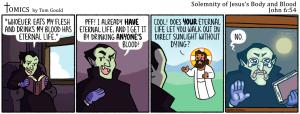
Holy God: Light of Christ
Light is what draws us to the Heavens on a day with a clear sky. It is what makes us wonder at the millions of stars bursting in radiance in the night. It is what can illuminate any darkness no matter how small the flame may be. The light we see in the Sacraments passing from Christ into His people is nothing short of a miracle. The light we witness on the Cross, expelling all sin and darkness from our twisted up hearts, brings us closer to the very nature of love, the deepest kind of love, the love of Christ. In Him I see my guiding Light and my strength to carry on each and every day of my life. He is my starlight in the dark of the sky, letting me gaze of his majesty.
William Clemens Starlight -(5/24/2022) Catholic Apostolate Center
Holy God: Loving One Another
What mother or father would not be ecstatic to see how much their sons and daughters love one another? What could make them happier? Would loving parents tell their children that they must concentrate on them and not one another? Truly loving parents would say, “Loving one another is the greatest gift you could give us.” And so it would appear that heaven will be union with God and with each other in perfect love. It means that eternity will be the revelation not only of all God’s love and goodness, but also of all that we have meant to each other. It pleases God when we love one another.
Jim Van Vurst, OFM A Closer Look at Heaven (Jun 27, 2022)| Franciscan Media
Holy God: Mary the Mother of God
Mary is the Mother of God precisely because Jesus Christ, her son, is God. And when Mary gave birth, she did not give birth to a nature, or even two natures; she gave birth to one divine person. The real problem with denying Mary as Mother of God and affirming Mary to be only the mother of the man Christ Jesus is that in doing so, you invariably either deny the divinity of Christ (as the fourth-century Arians did) or create two persons with regard to Jesus Christ. Both errors result in heresy.
The Councils of Ephesus and Chalcedon (433) dealt with a heresy called Nestorianism. Rather than teaching the truth that Christ is one divine person with two natures—one human and one divine, hypostatically unified, or joined together without admixture in the one divine person of Christ—Nestorianism, or at least one version of it, taught that Christ is two persons with a merely moral union.
The council fathers understood that Christians could never affirm this. The Bible declares to us, “In him the whole fullness of deity dwells bodily” (Col. 2:9). And “in him all things were created, in heaven and on earth, visible and invisible” (1:16). Nowhere do we read in them; we read only of him. The error proposes essentially different Christs. Jesus is truly one divine person. If one prays to a Jesus who is two persons, one prays to a “Jesus” who does not exist!
TIM STAPLES •How Can Mary Be God’s Mother? ( Catholic Answers
Holy God: Seeing God
Thoreau reminds us, “Only that day dawns to which we are awake.” Right now we see the world through the dark lens of our selfishness. Heaven shines radiantly around us; it would blind us if only we could see it. But dawn breaks for us as we grow more sensitive to the light. As we begin to love God, we alter the very atmosphere through which we look. It cannot happen immediately. Therefore, let the day always be a beginning—one continuous beginning. Let us live in infinite expectation. And slowly, gently, as we move between the moments, driven on by that subtle restlessness of the soul, we will make our exodus. It is then, when we are fully awake, and aware, and alive, that at last we will see God.
Mary Virginia Vietor The Memory of Heaven — Dappled Things
Holy God: Shepherd of our Souls
Jesus did not poor out the last drop of his blood so that we could drag ourselves through life with the hopes that, after a lengthy stay in purgatory, we could squeeze through the pearly gates by the skin of our teeth. Rather he says: “I came that they might have life and have it to the full” (John 10:10). He said this while speaking of us as if we were sheep and he our shepherd.
In my last visit to the Holy Land, I learned something about sheep and why the patriarchs of Israel herded them through the wilderness. Unlike cows and horses, sheep can survive on just about anything. Even scraggly clumps of weeds, scorched brown by the Middle Eastern sun.
But Jesus is a good shepherd. He is not content to see us barely survive. He wants us to thrive. He takes pleasure in plumb, robust sheep, not scrawny, anemic ones. So the pastures to which he leads us are verdant, lush, and green (Psalm 23), not scorched and brown. He spreads out a table, a true feast before us, not lunch in a brown bag. He does not ration our nourishment. Instead, our cup overflows.
Marcellino D’Ambrosio, Ph.D.The Good Shepherd and His Abundant Life (May 03, 2020) Catholic Lane
Holy God: Upside Down Kingdom
For Christians the life, death, and resurrection of Jesus becomes the primary archetypal story. Jesus is the ultimate new beginning who gives to us a new way of being human, a new way of understanding God’s faithfulness, and a kingdom that is all about hope. But it’s an “upside down” kingdom: We must die to self in order to find ourselves. We must become blind in order to see. We must carry our cross to find liberation. And even physical death itself gives way to eternal life. It’s a kingdom that finds its power in love, not violence.
Jesus was offering restoration to practically everyone he encountered, whether through a call to follow him into a new life, a physical healing that restored people again to their communities, or forgiveness that restored their own sense of worth and belovedness.
Andy Otto, Making Idols of Human Institutions (June 21, 2021) God In All Things
Holy God: Upside Down Perspective
We need to literally turn our temporal, worldly and human perspective upside-down and try to gain an eternal, spiritual and Godly perspective on the circumstances of our lives. This goes for both the good and what we may sometimes perceive to be the bad events in our lives. No matter what our circumstances, if we are people of prayer, we must come to believe that God always has our best interest in mind. And we must also understand that there is sometimes as much spiritual risk for us in our good times as there is in our bad. Therefore, we must avoid becoming proud in our time of prosperity, every bit as much as we must avoid becoming anxious in our times of adversity.
Mark Danis A World Upside Down (Jun 27, 2022) Integrated Catholic Life™
Holy God: Vulnerability of God
I choose to emphasize the humility of God in the Incarnation through the lens of vulnerability and not as some kind of “denigration” of God’s lofty State. Because what so shocked the ancient world about the Christian claim – – both among Jews and pagans – – wasn’t that God lacked the “power” to become incarnate, but that such a thing represented an unacceptable “compromising” of the divine eternity and immutability. Both Jews and pagans were very much accustomed to gods (God) who spoke to their seers, who took on an “alias” and walked among them for a bit, or who sent his emissaries to do his supernatural work. So what was shocking in the Christian claim wasn’t that God would deign to “come down” and cavort with his creatures in some theophany, but that God would “become” one of his creatures. Larry Chapp, A Christmas Meditation: The Vulnerability of God (December 25, 2020) Gaudium et Spes 22
Holy God: Why Does God Exist?
But it was this past November that one of my sons asked a question that I had (as far as I can recall) never thought of in the form he posed it: “Dad, okay, I get that God has no beginning, that he is the reason for his own existence, but this is what I still don’t get: Why does God exist? I mean, what’s his purpose for existing? And why is he love and not, like, meanness or something else? Oh, and if he’s really free, did he choose to come self-exist and be a Trinity?”
I think I passed out.
God is not simply one being among other beings, a kind of top of the food chain, the peak of a hierarchy, like moving from an amoeba to a man. Rather, there is an infinite chasm between God and his creation, and even though God became Flesh in Christ, and so came near, the truth of his absolute otherness, transcendence, and difference from us remains. Hence, the author of the book of Revelation falls down as though dead when the risen Christ first appears to him as “the One who is,” i.e. the same One who spoke to Moses in the Bush and named himself, I AM.
DR. TOM NEAL Why Does God Exist? (SEPTEMBER 13, 2017)– Word on Fire
Other Related Posts include
Using The Kind Gaze to Look Past Splinters
The Rites of Write(ing) – A List of Catholic Authors and some of their books.
Surfing the Catholic Web
Tweeting to the Choir: A Collection of Tweets


